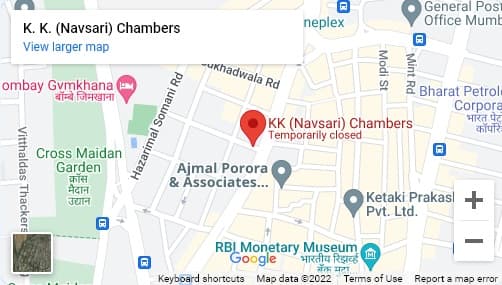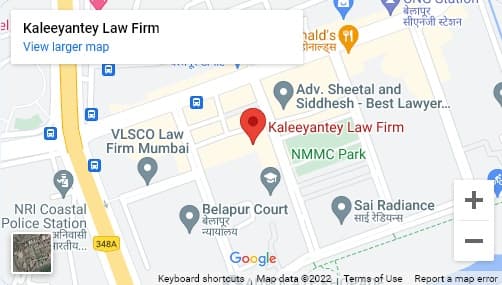Married couples often encounter various challenges in their daily lives. When these issues become overwhelming and impossible to fix, divorce may seem like the only way forward. Divorce is undoubtedly one of the most difficult experiences anyone can face, as it not only brings emotional turmoil but also involves navigating intricate legal procedures that can feel daunting.
Let’s have a clear understanding of divorce in India, covering key grounds for divorce, the legal issues involved, relevant governing acts, and essential steps to follow when hiring the right divorce lawyer to navigate the process effectively.
Various Grounds for Divorce in India
Under the Hindu Marriage Act (1955), divorce can be granted on several grounds, including:
- Adultery: Voluntary sexual relations with someone other than the spouse.
- Cruelty: Physical or mental suffering inflicted by one spouse on the other.
- Desertion: Abandonment for at least two years without reasonable cause.
- Conversion: If one spouse converts to another religion.
- Mental illness: Incapacitating mental disorder.
- Leprosy: Incurable, communicable leprosy.
- Venereal disease: Serious, communicable sexually transmitted disease.
- Renunciation: Entering a religious order.
- Presumption of death: Missing for seven years.
- Non-resumption of cohabitation: Failure to resume living together after judicial separation for one year.
Divorce laws differ for other religions, such as:
- Muslims – Dissolution of Muslim Marriages Act, 1939
- Christians – Indian Divorce Act, 1869
- Parsis – Parsi Marriage and Divorce Act, 1936
- Interfaith couples – Special Marriage Act, 1954
Issues in Divorce Proceedings
Divorce involves complex issues that require careful thought, sensitive handling, and expert legal guidance. Some of the most common concerns include:
- Child custody and visitation rights: Deciding who will have custody of the children and how visitation rights will be arranged is often one of the most sensitive aspects of divorce.
- Division of assets and property: Following a divorce, the equitable distribution of marital assets, including real estate, investments, and personal property, can lead to disputes. The law strives for fairness, but these matters can become contentious, especially when one spouse feels they have not been treated fairly.
- Alimony and maintenance: In some cases, one spouse may be entitled to financial support (temporarily or permanently), depending on factors such as income disparity, the standard of living during the marriage, and the duration of the marriage. This is an essential issue for spouses who may not have financial independence post-divorce.
- Grounds for divorce: Disagreements often arise over the grounds for divorce. Common reasons such as adultery, cruelty, or irreconcilable differences can complicate the proceedings. Proving such grounds, especially cruelty or issues within the marital home, can sometimes stretch the divorce process, making it more difficult and emotionally taxing for both parties.
- Emotional and psychological impact: Divorce can lead to feelings of loss, confusion, and stress, which often require psychological support for both spouses and children. Legal professionals should also recognise the emotional toll and recommend counselling or therapy to help individuals navigate this challenging transition.
Legal Frameworks Governing Divorce and Related Proceedings in India
In India, divorce laws vary depending on an individual’s religion, as personal laws typically govern family matters. Below is an overview of the major legal acts that guide divorce proceedings:
- Hindu Marriage Act, 1955: This law applies to Hindus, Buddhists, Jains, and Sikhs. It allows for both contested and mutual consent divorces and provides detailed grounds for dissolution of marriage, such as cruelty, adultery, and desertion.
- Special Marriage Act, 1954: This act governs divorce proceedings for interfaith and civil marriages, providing a secular legal framework for couples who marry outside of their respective religious laws.
- Muslim Personal Law (Shariat) Application Act, 1937: This act governs divorces among Muslims. It includes provisions for divorce initiated by the husband (Talaq), divorce initiated by the wife (Khula), and mutual divorce agreements.
- Indian Divorce Act, 1869: This act, which applies to Christians, addresses divorce procedures and matters revolving around property division, alimony, and child custody.
- Parsi Marriage and Divorce Act, 1936: This law is specific to Parsis and outlines the grounds and procedures for divorce, providing a clear legal process for their community.
- Guardians and Wards Act, 1890: While not exclusively related to divorce, this act addresses matters of child custody and guardianship, which are often integral parts of divorce proceedings.
- Protection of Women from Domestic Violence Act, 2005: This law offers additional protection and relief to women facing domestic violence. It often plays a crucial role in divorce cases where domestic abuse is a factor.
Role of a Divorce Lawyer
A divorce lawyer plays a pivotal role in navigating the legal complexities of separation and divorce. Their responsibilities include:
- Providing Legal Advice: A divorce lawyer helps you understand your rights and obligations under relevant laws, offering personalised advice based on your unique situation and needs.
- Drafting Legal Documents: Divorce petitions, settlement agreements, and child custody arrangements are carefully prepared to ensure they accurately reflect your interests and intentions.
- Negotiating Settlements: A skilled lawyer mediates and resolves disputes between you and your spouse, facilitating amicable settlements on contentious issues such as property division, alimony, or custody.
- Representing You in Court: If an agreement cannot be reached outside of court, your lawyer will represent you during hearings, present evidence, make legal arguments, and advocate for your best interests.
- Ensuring Compliance with Court Orders: After the divorce is finalised, your lawyer assists in enforcing the divorce terms, such as ensuring the timely payment of alimony or the proper implementation of custody arrangements.
Steps to Follow for Hiring a Divorce Lawyer
- Research Potential Lawyers: Start by identifying whether you need a lawyer for mediation, litigation, or both. Look for lawyers who specialise in family law, particularly those with experience in divorce cases. If you’re in Navi Mumbai, focus on local expertise. Check online reviews, client testimonials, and their success rate in similar cases.
- Schedule Consultations: Many lawyers offer initial consultations, which allow you to discuss your case, understand their approach, and assess their communication style. This is an opportunity to gauge whether you feel comfortable with the lawyer and their manner of handling your case.
- Assess Credentials and Experience: Verify the lawyer’s qualifications, bar council registration, and years of experience in handling divorce cases. Specialisation in local family laws and a track record of winning in similar cases can be an added advantage.
- Discuss Fees and Payment Structure: Ensure that the lawyer is transparent about their fees. Understand their payment structure—whether they charge a flat fee, hourly rate, or contingency fee—so you can make an informed decision.
- Evaluate Compatibility: A strong attorney-client relationship is built on trust and effective communication. Choose a lawyer who understands to your concerns, addresses your needs, and makes you feel comfortable and confident in their abilities.
- Check Availability: Ensure the lawyer has the time and resources to dedicate to your case. It’s essential that they can commit to handling your case without delays. Once you’ve compared your options, select the lawyer who best fits your needs, budget, and expectations.
Conclusion
Divorce proceedings are complex, but with the right divorce lawyer, you can navigate this difficult phase confidently and clearly. Expert legal guidance is crucial for understanding the legal framework and addressing critical issues like custody, alimony, and property division.
If you’re considering divorce or need legal assistance, contact Kaleeyantey Law Firm. Our team of experienced law professionals is committed to providing compassionate and effective representation tailored to your needs. Contact us today to take the first step toward resolving your legal challenges.




